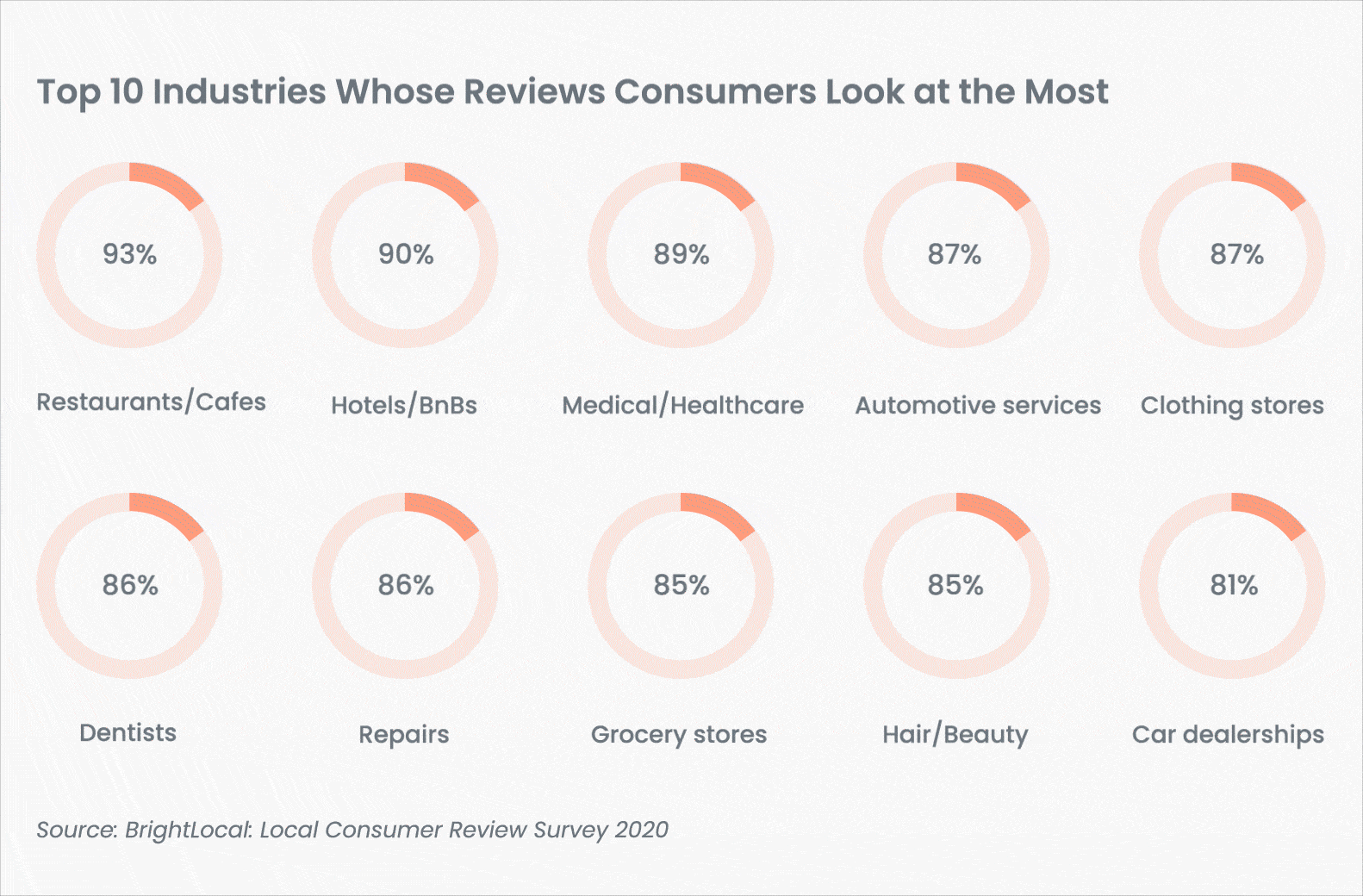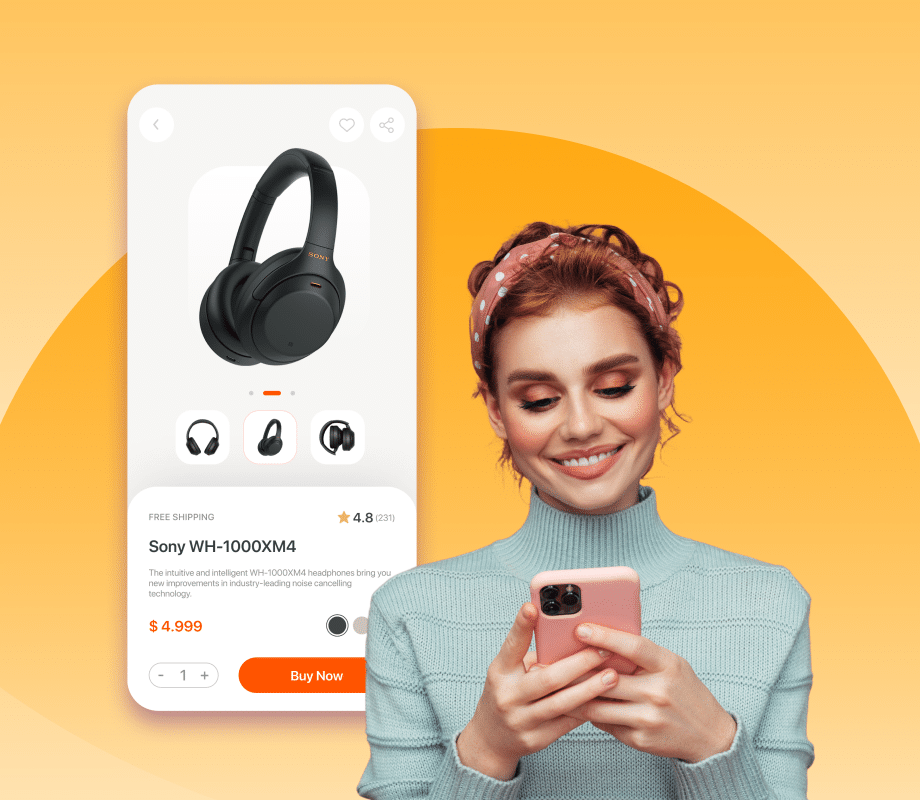Did you know that 95% of online shoppers rely on reviews before making a purchase?1
As in offline shopping, the power of ‘me too’ and ‘pull of the crowd’ in ecommerce is tremendous. Marketers have long capitalized on this persuasion tactic, even before Robert Cialdini introduced the concept in 1984 in his book Influence: Science and Practice.
In his research, Robert found that when we are indecisive about expected behavior in a certain situation, we look to other people to guide us towards action. He called this psychological and social phenomenon ‘Social Proof’.
Today, when shoppers are overwhelmed with a number of choices, social proof in the form of reviews, ratings, trends, community etc. instills confidence in them and nudges them to make a purchase.
Think about…
major purchases you’ve made over the past year. You'll see that making a purchase is a journey, not a spur-of-the-moment event. Each step brought you closer to that “no-brainer” decision that just felt right, and social proof played a crucial role in guiding you there.

Is Social Proof Effective?
In the bustling world of ecommerce, where competition is fierce and customer attention spans are short, leveraging social proof can be a game-changer. But does it really work? The benefits of social proof are well-documented.
 Builds Trust & Authenticity User-generated content like reviews and testimonials add credibility, as they come from real customers. This is especially important for millennials who value authenticity.
Builds Trust & Authenticity User-generated content like reviews and testimonials add credibility, as they come from real customers. This is especially important for millennials who value authenticity. Reduces Perceived RiskSocial proof lowers perceived risk by demonstrating positive experiences from others. For instance, a testimonial from a traveler can reassure potential visitors and increase their confidence in booking a trip.
Reduces Perceived RiskSocial proof lowers perceived risk by demonstrating positive experiences from others. For instance, a testimonial from a traveler can reassure potential visitors and increase their confidence in booking a trip. Boosts ConversionsResearch shows testimonials can increase conversions by 34%, while reviews can lift them by 270%.2 Social proof can also create a sense of urgency and push people to buy.
Boosts ConversionsResearch shows testimonials can increase conversions by 34%, while reviews can lift them by 270%.2 Social proof can also create a sense of urgency and push people to buy.
Unsurprisingly, reviews are among the most popular forms of social proof.




Four out of five consumers have changed their minds about a recommended purchase after reading negative online reviews. Source: Cone Survey

Online product reviews can result in an uplift of an impressive 270% in purchase likelihood. Source: Spiegel Research Center
Common Types of Social Proof Messaging
By creatively and soundly displaying social proof, ecommerce managers can stack the deck in their favor and gain more sales.
 TestimonialsFeaturing testimonials from satisfied customers can provide authentic voices that potential buyers relate to.
TestimonialsFeaturing testimonials from satisfied customers can provide authentic voices that potential buyers relate to. Popular ProductsShowcasing best-selling items or trending products highlights what’s in demand and taps into the consumer's desire to be part of a current trend.
Popular ProductsShowcasing best-selling items or trending products highlights what’s in demand and taps into the consumer's desire to be part of a current trend. Social Media EngagementDisplaying metrics such as follower counts, likes, and shares can showcase active engagement and a loyal customer base.
Social Media EngagementDisplaying metrics such as follower counts, likes, and shares can showcase active engagement and a loyal customer base. Star RatingsStar ratings offer potential buyers a simple way to gauge a product's quality and performance. They are widely used due to the ease of providing and interpreting them.
Star RatingsStar ratings offer potential buyers a simple way to gauge a product's quality and performance. They are widely used due to the ease of providing and interpreting them. Customer ReviewsPositive reviews can reassure, while negative feedback can help manage expectations.
Customer ReviewsPositive reviews can reassure, while negative feedback can help manage expectations. User-Generated ContentShowcasing photos, videos, or social media posts from customers who have purchased the product can provide real-life context and authenticity.
User-Generated ContentShowcasing photos, videos, or social media posts from customers who have purchased the product can provide real-life context and authenticity. Trust SignalsIncluding security badges, verified payment methods, and privacy assurances can build trust and make customers feel secure about their transaction.
Trust SignalsIncluding security badges, verified payment methods, and privacy assurances can build trust and make customers feel secure about their transaction.
34% 
Great testimonials can increase conversion rates on sales pages by 34%.
60% 
Nearly 60% of millennials make reactive purchases driven by fear of missing out (FOMO).
25% 
Just increasing online star ratings by 0.1% can improve conversion rates by 25%.
Social Proof for the Modern Customer
As the digital landscape evolves, so do the strategies to capture and retain customer attention. The types of social proof mentioned above are no longer differentiators when it comes to individualized experiences.
Did you know that 65% of consumers say their customer experience is ‘just okay’?3
Every experience feels the same, coming across as insipid and uninspired. Forrester calls this ‘Digital Sameness’.
By adding data-driven personalization to the mix, social proof can create highly personalized and impactful customer experiences.
Behavior-Driven Messaging
Implementing dynamic messages, such as “X people bought this item in the last hour,” can create a sense of urgency and encourage immediate action. This tactic leverages real-time data such as views, purchases, and adds to cart to enhance the relevance and impact of the message.
Scarcity and Popularity
Displaying messages like "Frequently bought together" or "Limited stock available" can prompt additional purchases or expedite decision-making. These elements can highlight the popularity and scarcity of items, encouraging customers to complete their purchase.
Product Badges
Help distinguish relevant products on item pages by creating visual emphasis with badges such as "Clearance Sale," "Sustainable Material," or "Locally Made". These badges quickly convey important product attributes that can sway customers' buying decisions.

Also read: Algonomy Winter Release ‘21 – Let’s Dig Into the Newly Launched Social Proof Messaging
Conclusion
Social proof is an invaluable tool in an ecommerce merchandising manager’s arsenal, capable of transforming visitor hesitation into confident buying decisions. By leveraging real-time metrics and product badges, ecommerce businesses can significantly boost their customer engagement and conversion rates. As competition in the digital marketplace intensifies, utilizing social proof effectively will be the key differentiator that drives sustained success for your brand.
Ready to embrace the power of social proof and watch your ecommerce venture thrive?
Request a demo today.
References:
- https://www.globenewswire.com/news-release/2022/01/13/2366090/0/en/Brand-Rated-Nine-out-of-ten-customers-read-reviews-before-buying-a-product.html
- https://spiegel.medill.northwestern.edu/how-online-reviews-influence-sales/
- https://www.forrester.com/blogs/11-01-11-hot_off_the_press_forresters_customer_experience_index_2011/












